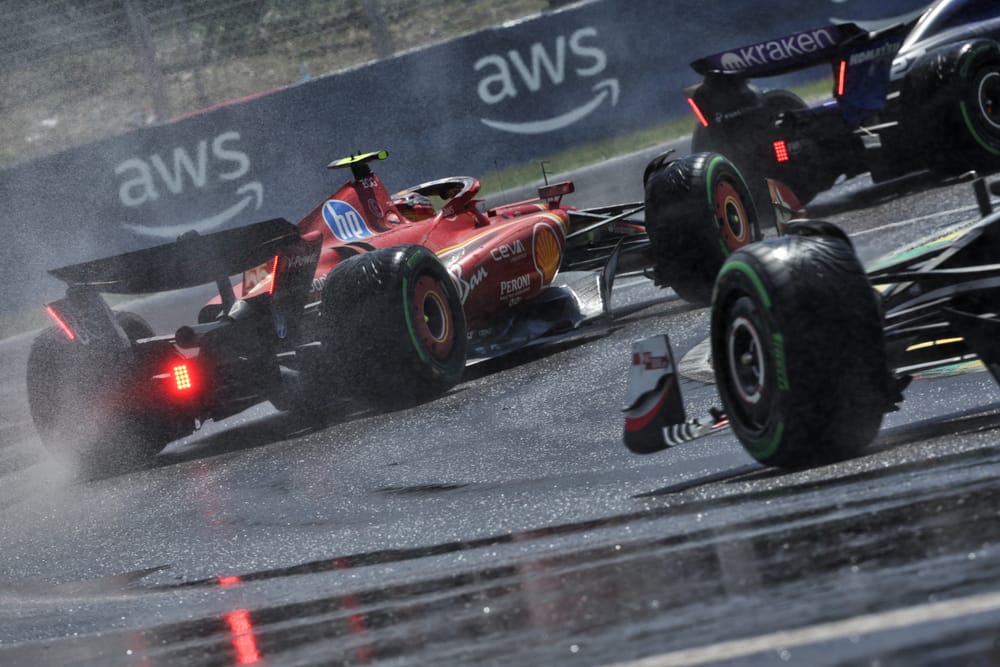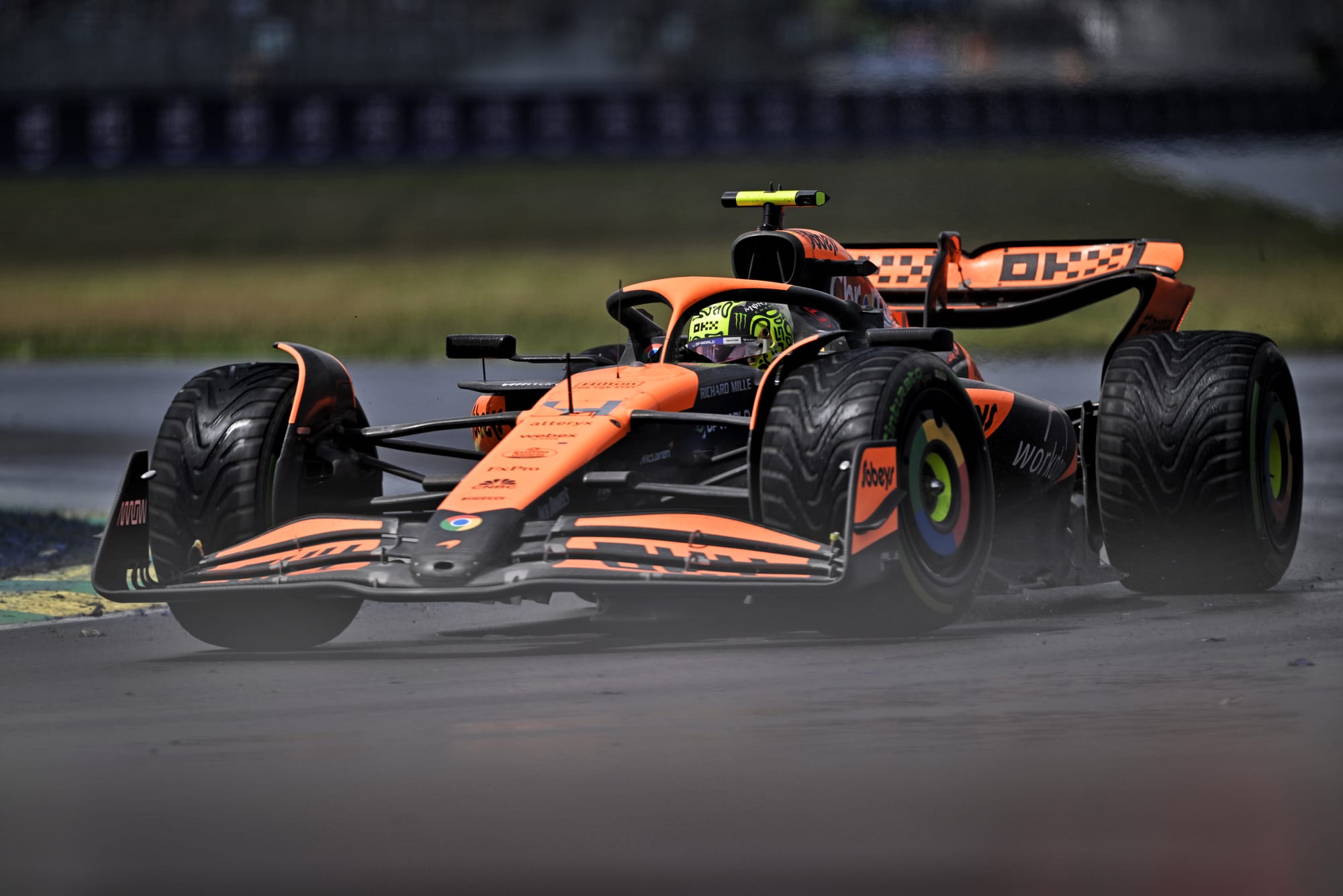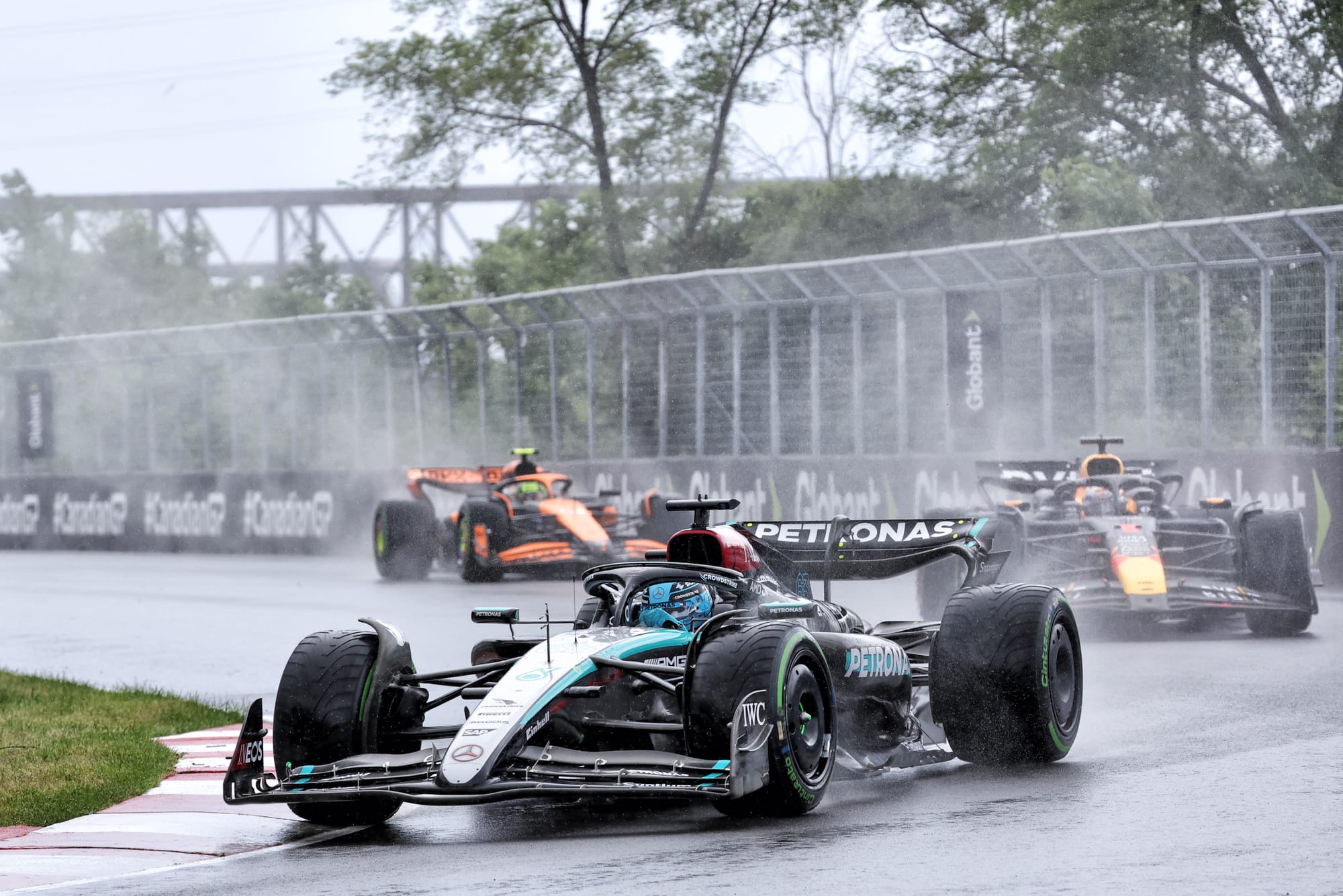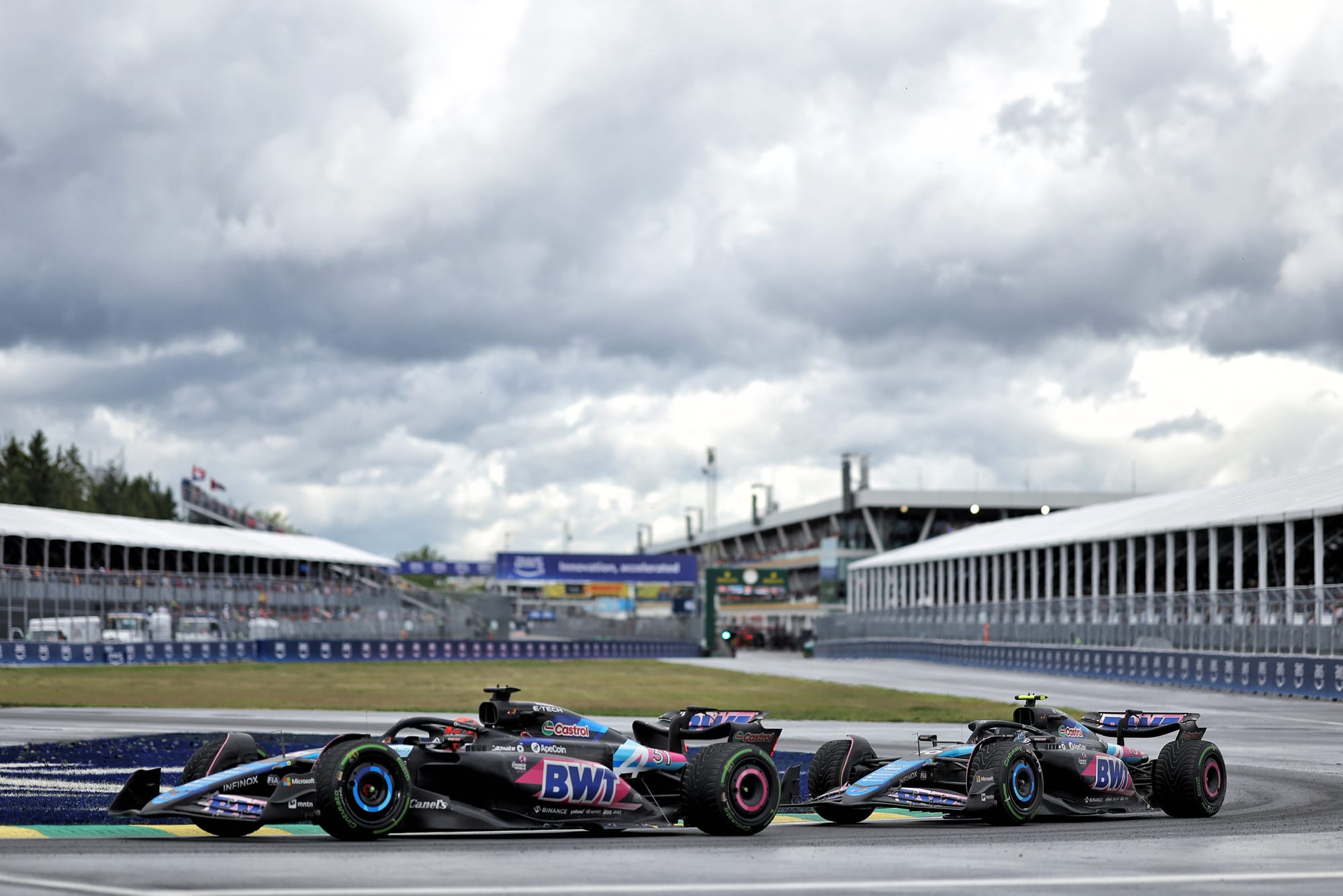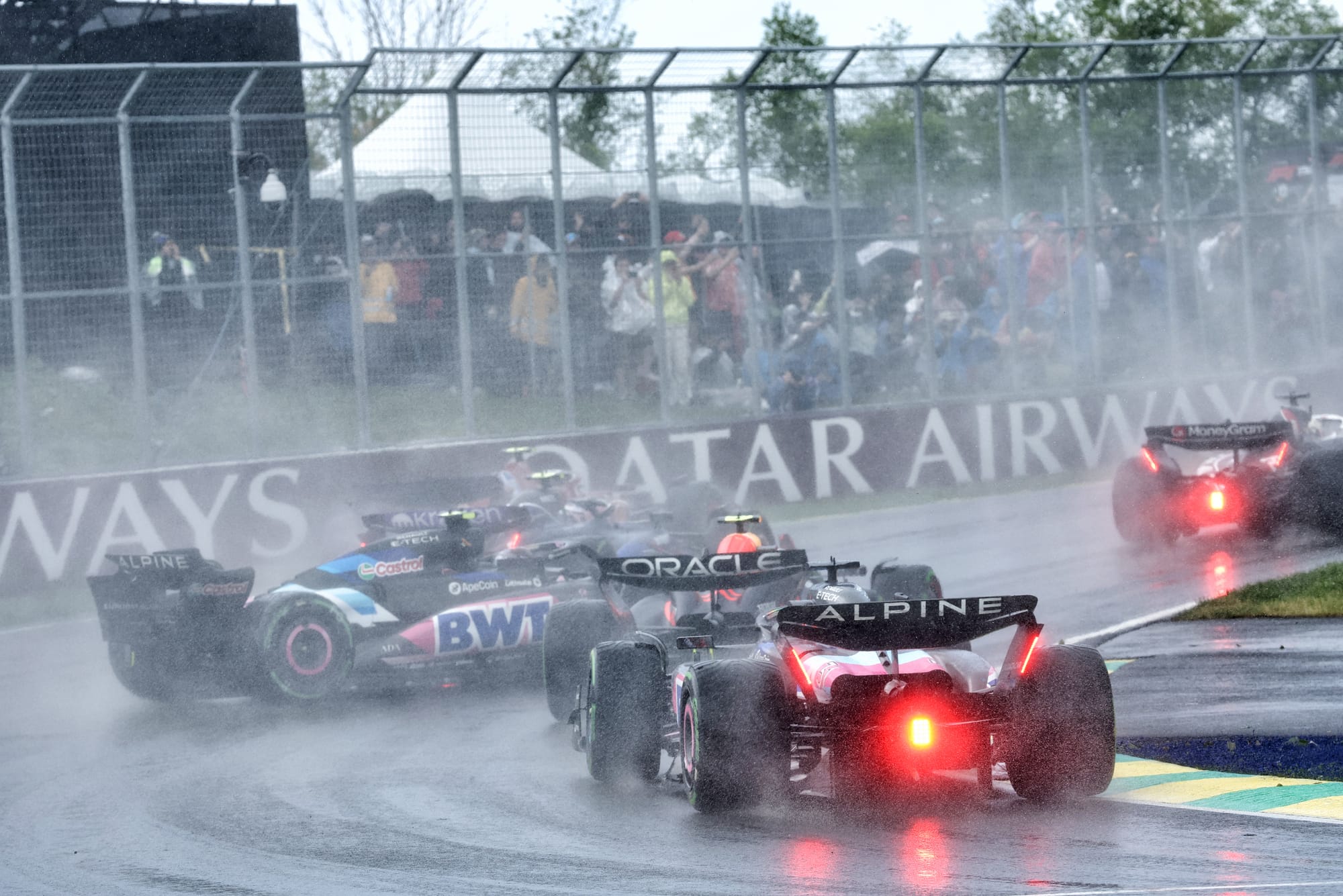Up Next

Ferrari has pledged to conduct a “deep analysis” after a miserable Canadian Grand Prix weekend in which both cars failed to make Q3 and the team scored zero points after an astonishingly poor grand prix for both drivers.
The incredible flop Ferrari suffered in qualifying in Montreal, where Leclerc complained of a mysterious lack of grip particularly at the start of his flying laps, has been traced to setting the starting tyre pressures too low.
The resurfaced track was smoother than in previous years and the prevailing mixed weather and relatively cold temperatures meant tyre warm-up became a serious issue for a car that has been deliberately conceived to be gentler on the tyres than it was in 2023.
Nevertheless, even starting just outside the top 10, you would ordinarily expect a car as strong as the Ferrari has been in race trim so far this season, one the team expected to again be in a close fight at the front with McLaren and Red Bull pre-weekend, to come through the order and finish well inside the points.
HOW FERRARI'S RACE UNRAVELED

The vastly improved form of Mercedes complicated the picture further in Canada, but sixth and seventh - where the Aston Martins finished - should have been the minimum target for Ferrari to limit the damage done by that qualifying underperformance.
But Ferrari’s race was a comprehensive disaster. Carlos Sainz laboured on the fringes of the top 10 after picking up floor and wing damage in a collision with Valtteri Bottas, before spinning off and inadvertently collecting Alex Albon’s Williams while battling for minor points.
Leclerc encountered what he called a “strange” engine problem that hampered his race from as early as the second lap.
Between that and an ill-advised gamble to switch to slick tyres before the track was dry enough, Leclerc was eventually lapped before deliberately retiring his car to the pits with no hope of scoring points.
This was nothing short of embarrassing for a driver and team that looked so assured in taking such a convincing victory at the previous race in Monaco.
BETTER RACE PACE HIDDEN?

Leclerc revealed he was “losing 1.2 seconds in the straights” in Montreal because of the engine in the first part of the Canadian Grand Prix.
Ferrari hasn’t yet explained exactly what that engine problem was - only that it related to what Ferrari team boss Fred Vasseur called “control” of the engine, rather than the engine itself, which suggests it was software-related.
Leclerc said he was performing 10 engine switch changes per lap from inside his car while the problem persisted, and it was clear from the long delay in the pits when he eventually stopped for slick tyres that this problem was only fixed by switching the engine off and restarting the car.
Ferrari hoped it would have the chance to perform this power cycle under a red flag stoppage after Logan Sargeant crashed his Williams - but that red flag stoppage never came.
It took so long to fix the engine problem - 30-40 seconds according to Vasseur - that Leclerc’s race rapidly became a lost cause.
He said the car felt good through the corners on the intermediate tyres, and Vasseur said Ferrari had actually been feeling “quite confident” about its race pace ahead of the start - but “from the beginning everything went wrong”.
Ferrari said Leclerc’s engine was 80bhp down on where it should have been and was costing him 10-15km/h [6-9mph] on the straights for 15 laps.
That meant Leclerc had no real chance to progress given the problem manifested itself from lap two onwards.
UNPICKING THE DISASTER

Qualifying outside the top 10, having your own drivers publicly criticise your Q2 tyre strategy, encountering reliability problems in the race, seeing one of your cars lapped by the frontrunners, then suffering a double non-finish and scoring no points on a weekend Max Verstappen and McLaren scored big, all adds up to a major disappointment for Ferrari.
As Vasseur points out, now F1 is so close at the front between the leading teams - Red Bull, McLaren, Ferrari and potentially Mercedes now too - any mistakes or underperformance will be ruthlessly punished.
But he’s also correct to argue that one bad race doesn’t completely undermine what Ferrari has achieved so far.
Vasseur said Ferrari “are not world champions” after the strong weekend Leclerc enjoyed at Monaco, but equally “we are not nowhere after a tough weekend”.
“We will be back on the pace in Spain,” he insisted. “I’m not scared after this kind of weekend.”
The key thing now is that Ferrari performs that deep analysis it has promised after Canada and quickly ingests the necessary lessons.
As Leclerc reiterated after the race, Ferrari was expecting to be in the mix in Montreal - and it emphatically wasn’t.
Underperforming when you expect to underperform is one thing; underperforming when you expect to do well is quite another.
Vasseur, unsurprisingly, is preaching a ‘don’t panic’ message to his team - to keep the same approach and motivation as before, and maintain full focus on developing the car and fixing problems.
The good news is that identifying a clear reason for the tyres not working properly in qualifying could mean this turns out to be a simple aberration, and so Ferrari can expect an immediate return to form at other tracks.

But even so, it was a stark reminder of how easily a strongly performing team can be toppled at this stage of what is turning out to be an extremely close contest at the front of the grid.
In F1 right now, the line between impressive success and embarrassing failure looks absolutely razor-thin.



